What Are Viruses: Everything You Need To Know
The world as we know it has been tossed into a chaotic frenzy in recent years due to a virus known as the Coronavirus (COVID-19). What are viruses? Everything you need to know! Please remember that I am not a doctor, nurse, or medical professional. This year, the Norovirus hit several areas pretty hard. Utah is one state that is spreading germs everywhere. Is it in your state?
I’m updating this post from March 2020 because I ended up in the hospital last Friday night after contracting the nasty NoroVirus. I got very dehydrated, more than I could ever remember. I was admitted to the hospital because I had been having shortness of breath. They had to transfer me to another hospital for more tests by ambulance, which I was not thrilled about, as you can imagine. NoroVirus. Please wash your hands often. I am a wash your hands advocate, and I still got it.
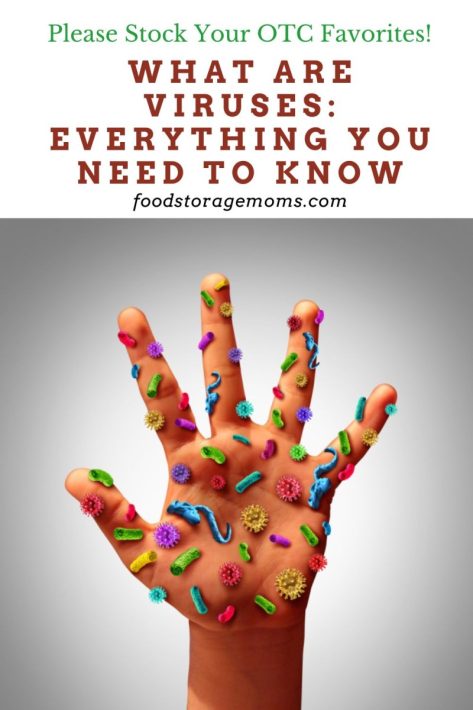
I quote the CDC on NoroVirus, “The most common symptoms are:
- Diarrhea
- Vomiting
- Nausea
- Stomach pain
Protect yourself and others from norovirus:
- Wash your hands often
- Rinse fruits and vegetables
- Cook shellfish thoroughly
- Stay home when sick and for two days after symptoms stop
- Avoid preparing food for others when sick and for two days after symptoms stop”. End of quote.
Stirred by the media, this virus and the related pandemic have caused worldwide concern. Recently, all types of hoarding have occurred, and world governments are taking proper precautions to slow the deadly disease’s spread to others. Please refer to the CDC for accurate information on COVID-19 and other viruses.
Not surprisingly, people are brushing up on everything they know about viruses and ways to stay out of their path. You’re undoubtedly one of them. Here’s more about viruses and everything you need to know about them.
What are viruses? Everything you need to know!
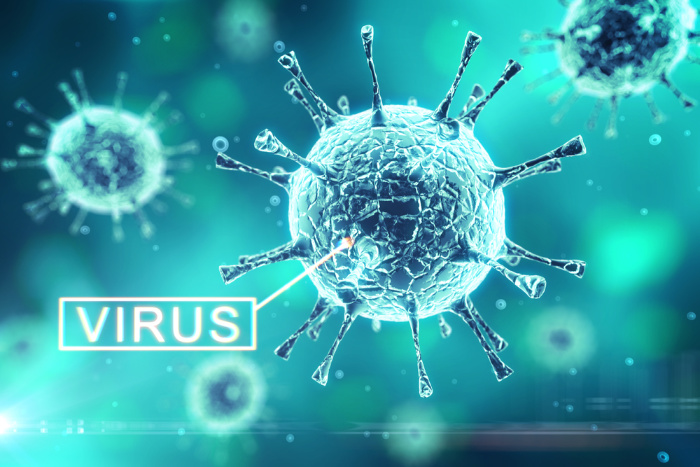
Viruses are extremely tiny particles that can infect animals, humans, and even plants, causing them to get sick. In fact, viruses are an estimated 1,000 times smaller than bacteria.
Even though viruses reproduce, they are not considered to be alive, nor are they dead.
Viruses consist of DNA and RNA and are surrounded by a protein coating called a capsid. These microscopic parasites depend upon live host cells to attach themselves, inject their genetic material, and begin to invade and take over.
Unlike bacteria, viruses, for the most part, carry diseases and are extremely specific about which cells they go after.
Interesting Facts
The word virus comes from the Latin word “poison” or “slimy liquid.” That is a pretty accurate description.
We already know that viruses can attack humans, animals, and plants but can also turn and attack other viruses.
Viruses also happen to evolve faster than any other living organism. In just a few short hours, they can make up to 1,000 copies of themselves, causing devastation quickly.
Unfortunately, antibiotics have zero effect on viruses. That’s because they have no target to aim at, only affecting the host cell.
Types of Viruses
Are you ready for this alarming bit of information? Millions of types of viruses, yet only around 5,000, have been described in full detail.
Some of the most common viral infections (spread from person to person) include the common cold, flu, norovirus (stomach flu in adults), rotavirus (stomach flu in children), Mononucleosis (kissing disease), HIV/Aids, shingles, herpes, meningitis, pneumonia, and hepatitis.
People the Most at Risk
Younger children and older adults with weakened immune systems are at the highest risk of contracting a virus. Depending on the virus, healthy adults have the lowest risk of catching or falling victim to it.
There are also viruses out there that show no favoritism to anyone, and even the healthiest of adults can die from them.
How Viruses Spread
Viruses spread from one person to another, directly or indirectly, by the tiny droplets that are scattered when a person sneezes or coughs.
Without even realizing it, a person may touch that same surface and then touch their eyes, mouth or nose with their hands, causing them to get sick.
Viruses can survive on surfaces for 24 hours, so desensitizing doorknobs, countertops, light switches, and other surfaces is often critical.
Other viruses can spread through sexual intercourse, sharing needles, or even transmitted by insects and animals.
Ways to Reduce Viruses from Spreading
1. Practice good hygiene—The best place to start is practicing good hygiene. Wash your hands often with soap and warm water for at least 20 seconds. This simple step can’t be stressed enough. It’s also wise to have a healthy supply of hand sanitizer around.
2. Cough into your elbow—Don’t use your hands to cover your face when you cough or sneeze. Instead, cough or sneeze into your elbow.
3. Stay home—It’s also very important that you stay home when you know, or even think, that you are sick. Places like schools and the workplace, which have a lot of people in them, are like breeding grounds for viruses.
4. Sanitize – Clean and sanitize regularly by disinfecting and wiping down surfaces.
5. Avoid sharing – Don’t share cups, plates, or eating utensils with others.
6. Avoid touching – Try your best to avoid touching your eyes, mouth, or nose with your hands. These areas are the quickest entrances for viruses into your body.
Relief From Viruses
Treating a virus with medicine doesn’t necessarily kill the virus (because it’s not technically alive), but it does provide relief from it. However, there are antiviral medicines out there that can work on particular viruses.
Most of the work is done by an individual’s immune system and antibodies.
Pain relievers, nasal decongestants, and cough suppressants are all treatments you can use to relieve a virus’s symptoms.
Several natural remedies may also relieve and help keep your immune system strong. Try garlic, peppermint, elderberry, ginger, turmeric, oregano oil, and echinacea. Honey is also an ingredient that can relieve symptoms like coughing and sore throat.
How Long Am I Contagious?
In most cases, people can become contagious as early as a day (up to 4 days) before any symptoms appear. Depending on the type of virus, these symptoms can last 5 to 7 days and sometimes up to 2 weeks.
People may still be infectious even after the last symptoms have disappeared. That’s why doctors urge people not to return to work or school for at least another 24 hours after one is feeling better.
Stock Your Home Pharmacy
- Electrolyte Drip Drop
- Imodium
- Aspirin
- Tylenol
- Ibuprofen (check with your doctor before using)
- Vicks VapoRub
- Bag Balm
- Dr. Bronner’s Soap
- Hand Sanitizer
- Tooth Brushes and Toothpaste
- Orajel
- Benadryl
- Advil
- First Aid Supplies
- Survival Medical Handbook
- Non-latex Gloves
- Antibacterial Soap
- Bars of Soap
- Emergen-C
- Lip Balm
- Nasal Spray
- Vitamins
- Essential Oils
- Allergy Medications
- Infant Fever Reducer Medications
- Child Fever Reducer Medications
Final Word
In case you missed my Bacteria: Everything You Need to Know. What precautions have you taken? Please keep prepping. May God bless this world, Linda
Copyright Images: Virus Depositphotos_20564365_s-2019, Virus Depositphotos_20042115_s-2019, Hand Germs Depositphotos_63914641_S By Lightsource

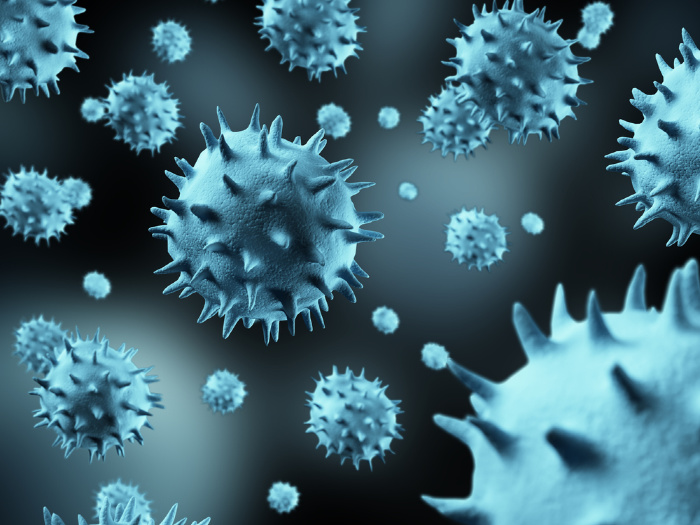


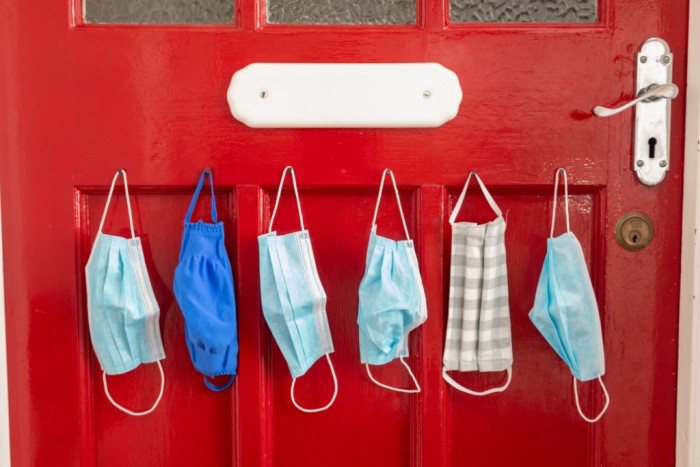
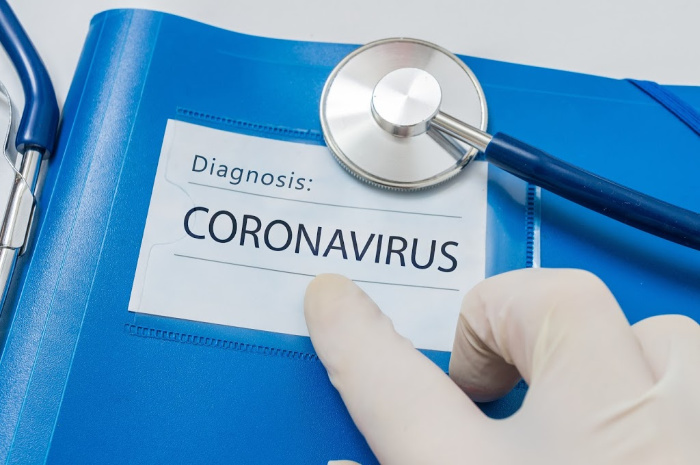
















Zinc is a supplement that can support immune health, and since it’s a mineral it is extremely shelf stable. For folks not eating a diet rich in eggs, shellfish or other zinc rich foods, it’s a good idea to have zinc tablets to help boost your system while it fights off a viral infection.
In an emergency where our food choices are limited it’s a great idea to have a stash of zinc tablets handy. I stock 10 mg tablets and 30 mg tablets. 10 mg is what I plan to use when on storage foods, and 30 mg are for when someone is ill.
Thanks for all these articles Linda. Really appreciate your outreach trying to keep folks safe!
HI DMWalsh, thank you for your kind words, my sweet friend. I need to stock up on my Zinc, I will check to see if I have 10 or 30 mg. I take one every day. This NoroVirus is rampant across the USA. Stay healthy everyone! Linda
Oh my Linda! I hope you are much better. It seems to take longer to recover from sickness when we are older.
Hi Paula, I’m on oxygen 24/7 I guess I was sicker than I realized. Thank you so much my sweet, friend. Linda
So sorry to hear you caught that nasty bug. I hope you are all better.
I keep electrolyte water additives at home for such an occasion.
Hi Janet, thank for thr reminder I ordered some this morning, we have 8 people living here, and my supply is gone. This NoroVirus is rampant here in Utah. They had to wear hazmat suits in my hospital room. The hospital said it was protocol with anyone with a “flu”. The oxygen issue I knew was bad but it was worse than I had expected. Life is always interesting. Linda
Hi Linda, So sorry to hear you got the Norovirus. Hope you feel better fast. Love your column and all your very informative articles. God Bless You. Thank you.
Hi CJ, thank you my sweet friend. I have been blessed beyond words to meet people just like you through my blog. Thank you again for your kind words, Linda